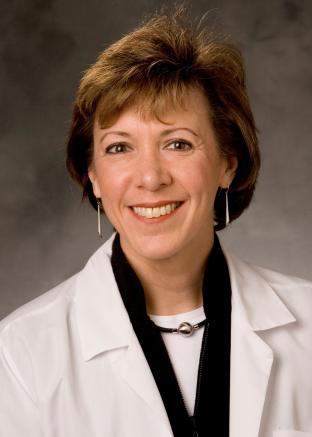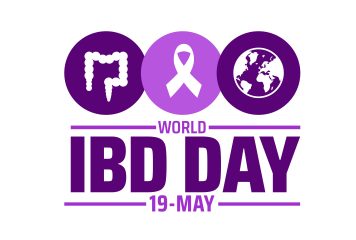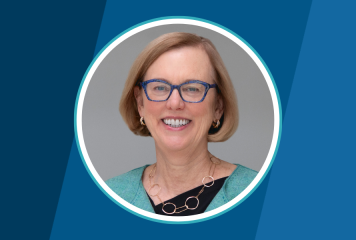
The Gastroenterology Board held its spring meeting on Monday, March 20, 2023. The agenda provided an opportunity to update the Gastroenterology Board on activity at ABIM and allowed for discussion of pressing issues in the field. The Specialty Board was joined by guests from the American Association for the Study of Liver Diseases (AASLD), the American College of Gastroenterology (ACG), the American Gastroenterological Association (AGA) and the American Society for Gastrointestinal Endoscopy (ASGE).
ABIM and the Gastroenterology Board gratefully acknowledge the service of Specialty Board members with terms ending June 30, 2023: Jane E. Onken, MD, who served as chair since July 1, 2017, and Kenneth R. DeVault, MD, who joined the Specialty Board in 2017.
The following is a summary of the spring meeting.
Conversation with the President
Prior to the meeting, members and guests of the Gastroenterology Board received a video update from Richard J. Baron, MD, MACP, President and Chief Executive Officer of ABIM and ABIM Foundation, highlighting progress and inviting discussion from the Specialty Board on some of ABIM’s leading priorities, including:
- The planned release of the first Longitudinal Knowledge Assessment (LKA®) quarterly formative score reports to more than 28,000 diplomates who have completed the fifth quarter of their five-year LKA cycle. Diplomates participating in the LKA will receive these score reports as a way to let them know how they are performing relative to the passing score and help identify any areas they may want to focus on in their future studies.
- Ongoing work in diversity, equity and inclusion (DEI), such as performing differential item functioning analysis of assessment items, developing health equity content in different disciplines, co-funding health equity projects for residencies, and creating more inclusive opportunities for diplomates to self-identify on their Physician Portal.
- Developments from the ABIM Board of Directors’ strategic planning work, such as exploring how new technologies like artificial intelligence and machine learning may help ABIM work more efficiently and develop better programs for physicians.
- Continued work with a coalition of national medical organizations to address medical misinformation and promote evidence-based information. Dr. Baron recently coauthored an article in the New England Journal of Medicine and spoke at both the University of California San Francisco Department of Medicine Grand Rounds and South by Southwest on the topic of misinformation.
Dr. DeVault noted that misinformation is prevalent because truth is more difficult to find and remember. Dr. Baron reflected on the current era in which community validation of science is being disregarded, and how the failure of institutions is generating a failure of trust in those institutions. He emphasized that board certification is meant to signal consistent attributes that people can rely on, and highlighted ABIM’s work in this area.
Misinformation and Implications for Gastroenterology
The Specialty Board held an open discussion on the implications of misinformation for the discipline of gastroenterology, including its effects on patient care, in order to contribute to ABIM’s ongoing strategic conversations about the issue. The discussion revolved around three major areas:
- Misinformation surrounding vaccines, such as patients with inflammatory bowel disease (IBD) on immunosuppression who decline vaccination for conditions including flu, COVID-19, etc.
- Misinformation surrounding medicine and procedures, including improper use or recommendation of at-home colon cancer screening tests even when contraindicated, and misconceptions regarding use of certain IBD medications due to fears related to the pandemic. The group questioned how to re-inform patients who decline appropriate screening tests including colonoscopy and endoscopy or self-discontinue use of an appropriately prescribed proton pump inhibitor, because they have chosen to accept the conclusions drawn by studies disseminated by the media rather than the medical advice of their provider. Members also identified misinformation regarding use of certain medications and biologics while pregnant, or when comorbid conditions outside of gastrointestinal disease are present.
- Misinformation and mistrust of health care providers, for example, patients reluctant to visit a hospital for colon cancer screening because of perceived infection risks. Some patients are more skeptical about physician recommendations, and this may have a negative impact on the two-way patient-provider communication regarding the rationale behind recommended diagnostic testing and treatment.
The Specialty Board and society guests discussed the importance of developing and disseminating print and electronic patient education materials that are easy for patients and other users to understand. Donald Palmisano Jr., JD, CAE, Chief Executive Officer of ASGE shared an example from the society’s colorectal cancer screening campaign launched in March 2022.
Special Consideration Pathways for International Medical Graduates (IMGs)
ABIM’s standard training requirements for certification include the satisfactory completion of accredited internal medicine residency and subspecialty fellowship training in the United States or Canada. In addition, there are four special consideration pathways to enable osteopathic or internationally trained physicians to obtain ABIM certification. The ABIM Council is exploring the idea of creating another special consideration pathway for international medical graduates who have completed their internal medicine training in another country and then completed accredited fellowship training in the U.S. or Canada. Like other ABIM diplomates, physicians in the proposed pathway would need to pass the ABIM Internal Medicine Certification Examination, and satisfactorily complete their accredited fellowship training to be eligible for subspecialty certification. The Specialty Board held a discussion on the implications of this possible policy change for gastroenterologists.
In their discussion, the group confirmed that only satisfactorily completed accredited fellowship training could count toward the subspecialty certification training requirements; that once admitted to the certification examination, physicians in this potential pathway would be subject to the same board eligibility period as other ABIM examinees; and that both ABIM and the Accreditation Council for Graduate Medical Education would play a role in confirming international residency training provided by the candidate. Some noted that the pathway could be a benefit by providing an opportunity for highly qualified candidates and increasing the number of applicants, but that a special consideration pathway may also make the process more competitive. Program directors and training programs would have an important role in assessing candidates applying through this new pathway.
Specialty Board Oversight of Assessments
The specialty boards that oversee each discipline of internal medicine are responsible for reviewing and approving the assessment blueprints and standards for certification, Maintenance of Certification (MOC) and the LKA. Each spring, the specialty boards review data related to the population of new graduates entering the discipline, diplomates maintaining their certification, workforce information, and assessment performance trends and feedback. Periodic review of these data helps to inform the specialty boards’ assessment decisions. The Gastroenterology Board discussed assessment data in the discipline and provided feedback to ABIM staff about which data were most helpful for ongoing oversight of assessment. Some of the data the Specialty Board reviewed are publicly available on ABIM’s website, including:
- Relative distribution of fellows in training per discipline
- Percentage of first-year fellows who are female by subspecialty
- Initial certification pass rates by discipline
- MOC pass rates by discipline
- Number of candidates certified in each discipline each year
In a continuation of their conversation at the fall Specialty Board meeting, the group discussed the performance of the Item-Writing Task Force—the group responsible for writing all of the content for the LKA and the Traditional, 10-year Exam—and how to approach some of the concerns expressed in the fall about member attrition, fostering connection between members and the delivery of more immediate feedback from the Approval Committees.
The Specialty Board and guests also heard some information about the LKA in gastroenterology. To date, 79% of eligible diplomates (those due for an assessment in 2023) had chosen the LKA . Staff also confirmed that data gathered over the first year of the LKA’s availability indicate that most questions on the LKA are answered in under two minutes. Specialty Board members inquired about negative feedback and whether enrollment data regarding gender reflect the discipline as a whole or offer indications about how the LKA is received by different gender populations. ABIM will look into these data for future analysis.
Practice Profile Assessments in Gastroenterology
Richard G. Battaglia, MD, FACP, Chief Medical Officer, ABIM
In their fall 2022 meeting, the Gastroenterology Board discussed the need to modify the current blueprint classifications for gastroenterology, moving from an anatomic structure (organ-based) to one that is organized by clinical conditions (disease-based). For over a year, ABIM has worked with AASLD, ACG, AGA and ASGE to survey diplomates with the aim of better understanding specialization in physician practice.
Dr. Battaglia updated the Specialty Board on some challenges that have arisen in exploring the work needed for practice profile assessment, including content development and recruitment of content experts, and necessary updates to some of ABIM’s information technology systems. ABIM continues to garner feedback from the gastroenterology societies on proposed revisions to the blueprint and keeps them apprised of any updates to the timeline and milestones.
Update from the Gastroenterology Approval Committees
Amar R. Deshpande, MD, University of Miami Miller School of Medicine; Chair of the Gastroenterology Traditional, 10-Year MOC Exam Approval Committee
The Gastroenterology Board works with three Approval Committees: two dedicated to Gastroenterology and one for Transplant Hepatology. Within each subspecialty is the Approval Committee for the Traditional, 10-year MOC Exam (which also deals with the initial certification exam); Gastroenterology also has an LKA Approval Committee. The Approval Committees are responsible for approving all assessment content and maintaining the assessment blueprints in their discipline.
Based on the organization’s desire to revise the current Gastroenterology MOC and initial certification blueprints, Dr. Deshpande shared the Approval Committees’ work on developing preliminary first-level blueprint topics and target percentages (i.e., the percentage of assessment items on a given topic). After training and sample work, the Approval Committees recommended first-level blueprint topics for both the Traditional, 10-year MOC Exam and the LKA. Specialty Board members were asked to review each potential first-level medical content category and target percentage and provide their feedback following the meeting.
Selection of New Approval Committee Members
The Gastroenterology Board reviewed the physician candidates for open positions on the Gastroenterology and Transplant Hepatology Approval Committees. After discussion, the Specialty Board voted unanimously to approve four physicians for terms beginning July 1, 2023.
There are still open positions on the Item-Writing Task Force. Openings in Gastroenterology and Transplant Hepatology, as well as all other specialties, can be found online.
Appointment of a New Chair for the Transplant Hepatology Approval Committee
The Gastroenterology Board approved Marwan S. Ghabril, MD, Professor of Medicine at the Indiana University School of Medicine, as the new Chair of the Transplant Hepatology Approval Committee for a term beginning July 1, 2023. Dr. Ghabril joined the Approval Committee as a member in 2019.
Qualitative Feedback on the Longitudinal Knowledge Assessment (LKA®)
Benjamin J. Chesluk, Ph.D., Senior Researcher for Ethnographic Research, and Jeffrey Miller, MSIS, Chief Information Officer at ABIM, provided a review of qualitative feedback obtained on the LKA experience since the program launched in January 2022. Feedback continues to be largely positive, describing the LKA as a welcome alternative to the Traditional, 10-year MOC Exam, and demonstrating a broad variety of approaches to when and how participants prepare for and answer questions. In surveys, the majority of participants responded that they find the LKA useful for learning, would recommend it to a colleague and plan to continue with the assessment, with no significant difference between participants taking the LKA in one or multiple disciplines.
ABIM has assembled a post-launch LKA physician advisory panel of 12 diplomates to aid in ongoing and future research about the LKA experience.
ABIM staff noted that there are still unknowns, such as how feedback will change for participants over time as the LKA continues, and how the quarterly formative score reports planned for release this spring will impact reactions. It also remains to be seen how the LKA affects individual practice, process and outcome measures, which is planned for long term exploration.
Setting a Quality Agenda in Gastroenterology
In late 2021, the American Board of Medical Specialties (ABMS)—which comprises 24 medical certifying boards in the U.S., including ABIM—published new standards for continuing certification. The standards include a requirement for member boards like ABIM to facilitate the development of a discipline-specific quality agenda. Richard G. Battaglia, MD, FACP, ABIM’s Chief Medical Officer, spoke to the Gastroenterology Board about the new standard. He emphasized that this standard is not resulting in an individual diplomate requirement to complete quality improvement activities for ABIM MOC. Dr. Battaglia invited the group to discuss how they envision ABIM engaging external stakeholders to identify issues that can serve as elements of a mutually agreed quality agenda in the discipline. Additionally, the Specialty Board discussed the role they can play in this process.
Members of the group made suggestions about the kinds of organizations ABIM could engage with, such as organizations that represent patients and the public interest, public health professionals and minoritized groups within the physician community. They also suggested providing MOC points for mentorship, DEI initiatives, research and presentations.
Communications and Governance Engagement
John Held, Senior Director of Communications, and Peter McConnell, Program Manager for Governance and Medical Society Communications, updated the Specialty Board on ABIM’s ongoing communications work with Governance (the ABIM Board of Directors, ABIM Council, Specialty Boards and Advisory Committees, and Approval Committees) and invited Specialty Board members to participate in engagement work. The communications team regularly engages ABIM Governance members to help give diplomates a better understanding of the individuals representing their interests in each discipline, and to help the community better understand the value of certification.
Specialty Board members provided feedback about how they could continue to take an active role in ABIM’s communications initiatives with diplomates, the medical community and the public, such as through media interactions, the ABIM blog and working with their colleagues and medical societies.
In Closing
The Gastroenterology Board values the feedback and commentary of the entire medical community, including diplomates and society partners.
Do you have any questions? Are you interested in getting involved?
If you have questions after reading this report, please connect with us through the following channels:
- Subscribe to the ABIM blog.
- Call 1-800-441-ABIM (2246).
- Email request@abim.org.
- Join our Governance to help guide our future direction.
Join our Community Insights Network to share your feedback.



